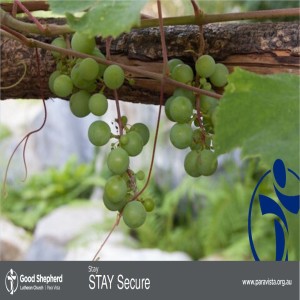
To be a servant in the ancient world was taxing and often frustrating. At the whim of the master, the servant must drop everything in order to serve the master’s desires. Whether preparing food, cleaning up, taking care of guests, the servant was commanded to do this without question.
To be a disciple of a teacher was in the same vein. To serve under the tutelage meant that the servant’s immediate response was necessary. To argue was a punishable offense. Certainly slaves, servants and students would never consider their masters ‘friends.’ Kind and generous, perhaps, but a friend? Not a chance.
The only way a servant and a master could become friends is if the master freed the servant. To be set free from the bondage of ‘must’ (‘you will do what I say’) to the glory of ‘would you,’ the servant-turned-friend would have the choice of when and how to serve.
But true friends are always freed to make the choice to help.
Interesting how Jesus puts this new framework in place for his disciples.
This is my command: Love one another as I have loved you. No one has greater love than this: to lay down their life for their friends. You are my friends if you do what I command you. I do not call you servants anymore because a servant doesn’t know what a master is doing. I have called you friends, because I have made known to you everything I have heard from my Father. You did not choose me, but I chose you. I appointed you to go and produce fruit and that your fruit should remain, so that whatever you ask the Father in my name, he will give you. This is my command: Love one another. ~John 15:12-16
Jesus has freed his disciples from their role as his ‘servant’ to a new paradigm of friendship. What does this mean? How did they react? What does it mean for us to have (and be in) friendships in the 21st century of vague, temporary and disposable friendships?
God’s peace and you ponder what a friend we have in Jesus!
Pr Reid Matthias
More Episodes
 2024-08-25
2024-08-25
 12
12
 2024-08-25
2024-08-25
 9
9
 2024-08-18
2024-08-18
 17
17
 2024-08-18
2024-08-18
 14
14
 2024-08-04
2024-08-04
 15
15
 2024-08-04
2024-08-04
 16
16
 2024-07-28
2024-07-28
 20
20
 2024-07-28
2024-07-28
 22
22
 2024-07-14
2024-07-14
 24
24
 2024-07-14
2024-07-14
 19
19
 2024-07-07
2024-07-07
 18
18
 2024-07-07
2024-07-07
 27
27
 2024-06-30
2024-06-30
 20
20
 2024-06-30
2024-06-30
 19
19
 2024-06-23
2024-06-23
 18
18
 2024-06-23
2024-06-23
 22
22
Create your
podcast in
minutes
- Full-featured podcast site
- Unlimited storage and bandwidth
- Comprehensive podcast stats
- Distribute to Apple Podcasts, Spotify, and more
- Make money with your podcast
It is Free
- Privacy Policy
- Cookie Policy
- Terms of Use
- Consent Preferences
- Copyright © 2015-2024 Podbean.com






